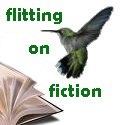Well dang…that didn’t work … lost what I’d done… trying again without the comments for now
Stephanie & I have been discussing my psych paper – and my longer term plans for grad school – elsewhere … reposting here in hopes that shakespearemom might be inclined to stop by and give her input 🙂 YOUR input is welcome and will be much appreciated even if you’re not shakespearemom though 🙂
So …I’ve decided to go with quick and easier … rather than do the interview/research option, I think I’m just going to write a research paper – can get it done faster – which given how quickly the summer is flying by, is important… I need to have it done before I start at Trent.
Well … not really …but I very much want to have it done before then…
so …. need to come up with a topic.
Ideally, will be something I can use when it comes to my MA/Phd work…. so something re: fictions and adolescents would be good…
The guidelines …
Topics should be related to one of the following themes reviewed in the course:
- Social problems and adolescent delinquency
- Gender and adolescence (i.e., the experience of growing up male or female)
- Identity development during adolescence
- The role of culture in adolescent development
I am thinking I could maybe go back to the issues I addressed in the first theory paper re: Anthem of a Reluctant Prophet – the one re: fiction & kids in care – focus on the psychology stuff rather than on Anthem…. ? Tie it somehow into treatment programs for juvenile delinquents, i.e. the first bullet option… therapeutic recreation …
Thoughts? Questions? (Questions are the thing I most miss from my collaborators, actually – it’s usually your questions about what I’m doing that help me to frame where I’m going)



flitting Said:
on August 6, 2008 at 11:58 am
Comments are being a pain…so will leave those off for now
Stephanie Barr Said:
on August 6, 2008 at 12:04 pm
Ha! I can post my own comments from the other thread here, though.
Aha! Now I don’t have to guess.
It’s hard for me to see how I can help you effectively. The same directions I might choose, based on my own opinions and background, are likely to be different than your own, especially since you’ve done so much work with juveniles.
However, here’s a point of interest. I’m from an unhealthy childhood as is my husband and both of us have numerous siblings. Across the board, we focused early (teenage years) on a type of literature that we continue to follow. Almost across the board it has involved one of four elements: fairy tales, science fiction, fantasy and/or idealized European history. What I mean is, we routinely choose literature that either have justice: good/clever/innocent person comes out alright, a world people really can be noble or science and fantasy where capable authors can and often do build worlds that highlight one social construct or another and – generally – let the good guys win. None of us glommed to most romance (too shallow and often rewarding reprehensible behavior, like rape, with love), horror, mystery, westerns (which are often graphic or downers) or the gritty realism of much of mainstream literature.
Instead, we embraced McCafferey and Heinlein, Rawling and Bradley, Shakespeare and Heyer, Star Trek and Star Wars. True, we had excursions outside of that, but I can always trace those back to humor, and that same nobility of purpose or need to make order from anarchy, the good guys winning – because we know that isn’t always the case.
Stephanie Barr Said:
on August 6, 2008 at 12:04 pm
I know many of us read for escape. That would tie in nicely, but probably has more research requirements than you can fit in the time you have.
Stephanie Barr Said:
on August 6, 2008 at 12:05 pm
Actually, that’s all my clever stuff. I’ll leave you to post your own comments 🙂
flitting Said:
on August 6, 2008 at 12:06 pm
what we were talking about, though, was the category of writing for “emerging adults” …. and that even though it is not a recognized publishing category, perhaps it should be…. there are plenty of books that are particularly appropriate for the group …. but they get lost in the ‘adult’ or YA novels for the most part.
we have also been talking about the therapeutic benefits of reading fiction, and how many people with troubled childhoods/adolescence report that books “saved their life” or helped them cope …another research area that I am very much interested in.
flitting Said:
on August 6, 2008 at 12:07 pm
perfect, Stephanie! thanks 🙂
now I really am off to throw beer bottles around…back when I can 😦
David Said:
on August 8, 2008 at 9:47 am
I love the topic idea … perhaps more than in any other creative endeavor, books suitable for kids can be life-altering. Which doesn’t necessarily mean that people should “target” that audience, but I do think that more writers with troubled childhoods should write the kinds of stories they liked to read when they were kids, or perhaps tell on paper the stories they told themselves in order to survive.
I might also suggest an alternative way to think about books as “escape” … Stephanie’s comment was very interesting to me, regarding the types of stories that appeal to troubled kids. I would argue that the huge investment in these books isn’t because they provide escape, but because they provide hope in a form that is acceptable to someone who is suffering. This is, I think, slightly different than escape. I think a lot of suffering people find it very threatening to invest hope in their own lives, for fear of disappointment — but when they identify with the protagonist of a book, that is a safe place to invest hope, and when that protagonist prevails, it positively impacts the reader’s emotional life.
Not sure if that was coherent.
Stephanie Barr Said:
on August 8, 2008 at 4:38 pm
It was coherent to me, David. In fact, I absolutely agree. I will often read things, as an adult, where things are realistic and good doesn’t necessarily prevail, but that’s not what I like to read most. My bookshelves are full to overflowing with adventure and humor where the good guys, the ones that did the right things, come out on top.
That’s how I write, too.